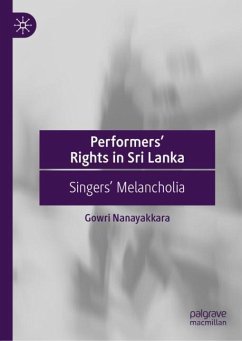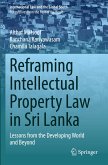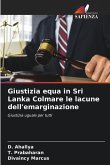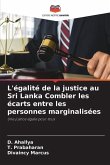This book explores whether global music copyright law and the performers' rights regime (PRR) have been able to improve the economic position of artists, as they were originally intended to. The author investigates whether this regime effectively addresses contemporary issues regarding royalty payments and cover songs in Sri Lankan music, drawing on the empirical findings of a case study she conducted on the Sinhala music industry. She finds that the PRR developed internationally and implemented in Sri Lanka is predicated on a particular view of the role of performers and their relationships with other actors in the music industry; although this view can be found in the USA, UK and India, it does not seem to reflect the established practices and relationships within Sri Lanka's contemporary music industry. While providing a socio-historical and legal analysis of these differing industrial settings and investigating the manner in which they impact the PRR's (in)ability to deliver improved economic security for Sinhala singers, the book also offers policymakers recommendations on how to supplement current national copyright law and the PRR in order to provide a secure economic position for music artists in Sri Lanka.
Bitte wählen Sie Ihr Anliegen aus.
Rechnungen
Retourenschein anfordern
Bestellstatus
Storno








